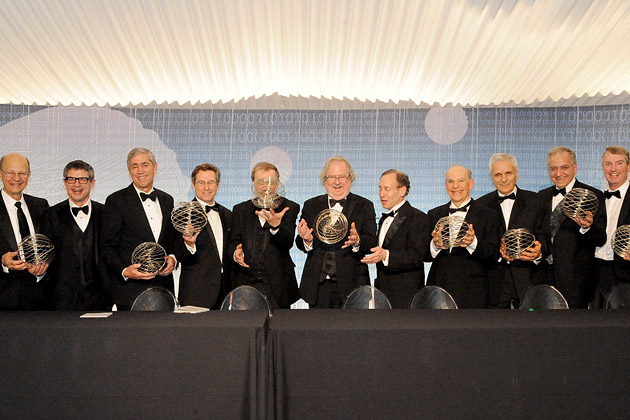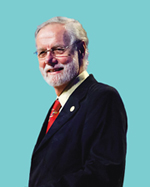



 |
Let's Hit 'Pause' Before Altering Humankind Two Nobel laureates on gene technology capable of making changes that are heritable by generations to come.
|
|
|
Congratulations to Steven Barrett and Rachel Gomez! The NSF Graduate Research Fellowship Program recognizes and supports outstanding graduate students in NSF-supported science, technology, engineering, and mathematics disciplines who are pursuing research-based Master's and doctoral degrees at accredited United States institutions. Learn more about NSF Graduate Research Fellowship Program |
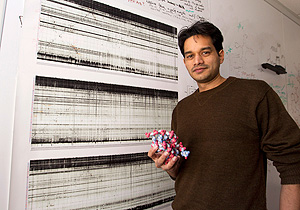 |
Rhiju Das awarded the ACS COMP OpenEye Outstanding Junior Faculty Award Congratulations Rhiju Das! Rhiju is a recipient of the ACS COMP OpenEye Outstanding Junior Faculty Award, which provides $1,000 to up to four outstanding tenure-track junior faculty members to present their work in COMP symposia at the Spring 2015 Denver, CO ACS National Meeting. The Awards are designed to assist new faculty members in gaining visibility within the COMP community. |
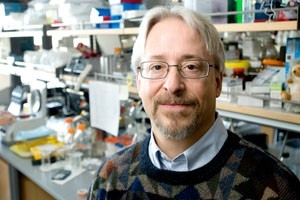 |
Drug may prevent development of invasive bladder cancer, researchers say A drug already approved for use in humans may prevent invasive bladder cancer, according to a study by researchers at the Stanford University School of Medicine. |
 |
Gamers: The new face of scientific research? Das and EteRNA’s co-inventor, Adrien Treuille, PhD, (now at Carnegie Mellon University) think the gaming approach to biology offers some distinct – and to many scientists, perhaps unexpected – advantages over the more-traditional scientific method by which scientists solve problems: form a hypothesis, rigorously test it in your lab under controlled conditions, and keep it all to yourself until you at last submit your methods, data and conclusions to a journal for peer review and, if all goes well, publication.
|
 |
Research leads to new understanding of how cells grow and shrink Researchers use new techniques to document how cells can conceal growth and then suddenly swell up. The study is a paradigm shift in understanding "osmotic shock" and may lead to new strategies for fighting bacterial diseases. The research paper, which describes a process known as "osmotic shock," was co-authored by Julie Theriot, a professor of biochemistry and of microbiology and immunology at Stanford School of Medicine.
|
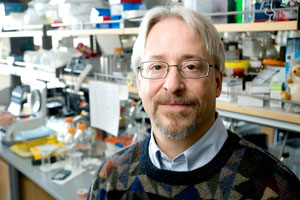 |
Philip Beachy and his team found a single type of cell in mice that gives rise to invasive bladder cancers Their study, conducted in mice, is the first to pinpoint the normal cell type that can give rise to invasive bladder cancers. It’s also the first to show that most bladder cancers and their associated precancerous lesions arise from just one cell, and explains why many human bladder cancers recur after therapy.
|
 |
The Biochemistry Department would like to congratulate our 2014 NSF Award recipients and honorable mentions NSF Graduate Research Fellowship Program
|
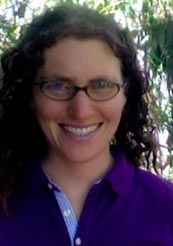 |
Professor Salzman selected for 2014 Sloan fellowship. Congratulations Julia Salzman! The Alfred P. Sloan Foundation is pleased to announce the selection of 126 outstanding U.S. and Canadian researchers as recipients of the 2014 Sloan Research Fellowships. Awarded annually since 1955, the fellowships are given to early-career scientists and scholars whose achievements and potential identify them as rising stars, the next generation of scientific leaders.
|
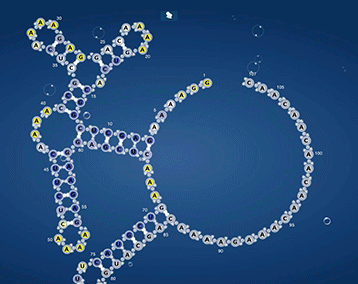 |
Online Video Game Plugs Players Into Remote-Controlled Biochemistry Lab In a new twist, researchers have now crowdsourced their experiments by connecting players of a video game to an actual biochemistry lab. The game, called EteRNA, allows players to remotely carry out real experiments to verify their predictions of how RNA molecules fold. The first big result: a study published this week in the Proceedings of the National Academy of Sciences, bearing the names of more than 37,000 authors—only 10 of them professional scientists. "It's pretty amazing stuff," says Erik Winfree, a bio physicist at the California Institute of Technology in Pasadena. Read publication - "RNA design rules from a massive open laboratory"
|
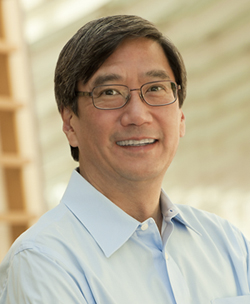 |
Exciting News from Stanford Biochemistry The Department of Biochemistry and Stanford's new Institute for Chemical Biology are delighted to announce the return of Dr. Peter Kim after 10 years as president of Merck Research Laboratories and 13 years on the faculty at MIT. Dr. Kim is a structural biologist who has made seminal discoveries in elucidating how viral proteins cause membranes to fuse. He has designed compounds that stop membrane fusion by HIV, thus preventing infection, and has pioneered efforts to develop an HIV vaccine based on similar principles. His lab will continue to study HIV structural biology and vaccine development. |
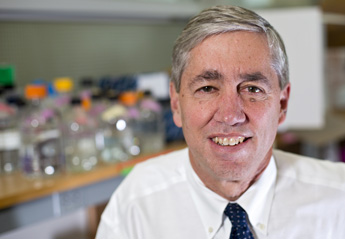 |
Biochemistry Department alumnus Rick Lifton wins Breakthrough Prize
|
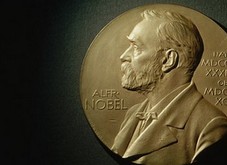 |
Biochemistry Department alumni share 2013 Nobel Prize
|
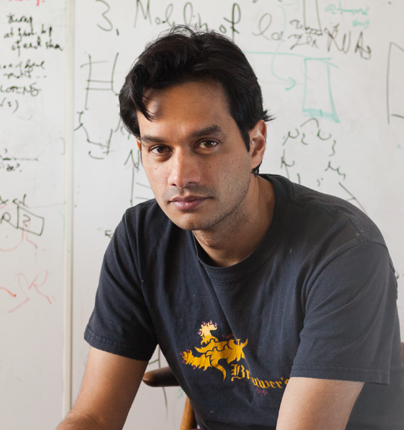 |
NOVA documentary on Eterna wins a Kavli award. A NOVA documentary highlighting the EteRNA video game and cloud biochemistry platform has received a Kavli award for television feature reporting. EteRNA is a joint project of Prof. Rhiju Das in Stanford Biochemistry and computer scientist Prof. Adrien Treuille (Carnegie Mellon).
|
|
Ron Davis nominated as one of Today's Greatest Inventors, by Atlantic Magazine. Congratulations Ron Davis! A substantial number of the major genetic advances of the past 20 years can be traced back to Davis in some way.
|
\ 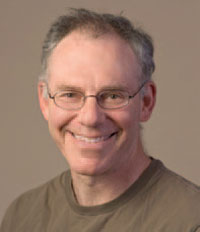 |
Daniel Herschlag awarded a multi-site project grant from the General Medicine Science Institute Congratulations Daniel Herschlag! The project, titled "The Fundamental Studies of RNA folding," will bring together seven investigators from Stanford, Rutgers, the University of Michigan and University of Texas-Austin. Herschlag, the project director, will share Stanford's approximately $5 million portion of the five-year grant with Stanford co-investigators Rhiju Das, PhD, assistant professor of biochemistry; Hideo Mabuchi, PhD, professor and chair of applied physics;, and Sebastian Doniach, PhD, professor of applied physics. Learn more about this research!
|
|
Stanford launches new interdisciplinary Institute for Chemical Biology Khosla played a key role in establishing the institute, and his expertise in the field made him a natural choice to be founding director, said Ann Arvin, vice provost and dean of research. The executive committee and advisory board are comprised of some of Stanford's most accomplished molecular scientists, engineers and clinicians; including Professor Daniel Herschlag of the Biochemistry Department. Institute for Chemical Biology website
|
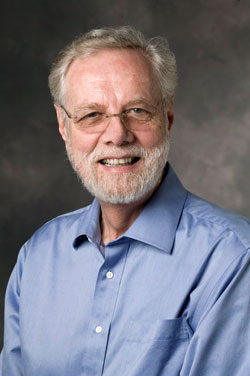 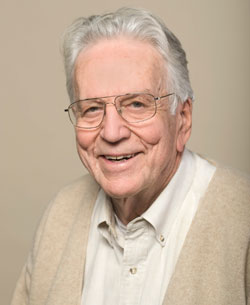 |
2013 Alpert Foundation Prize Congratulations Ron Davis and David Hogness! The Alpert foundation recognizes genetic pioneers. The 2013 Warren Alpert Foundation Prize will be awarded to Ronald Davis and David Hogness, for their seminal contributions to the concepts and methods of creating a genetic map in the human, leading to the identification of thousands of disease genes. This fundamental work ushered in a new era in human genetics and established the framework for the Human Genome Project.
|
| CLICK HERE FOR ARCHIVE NEWS STORIES | |




